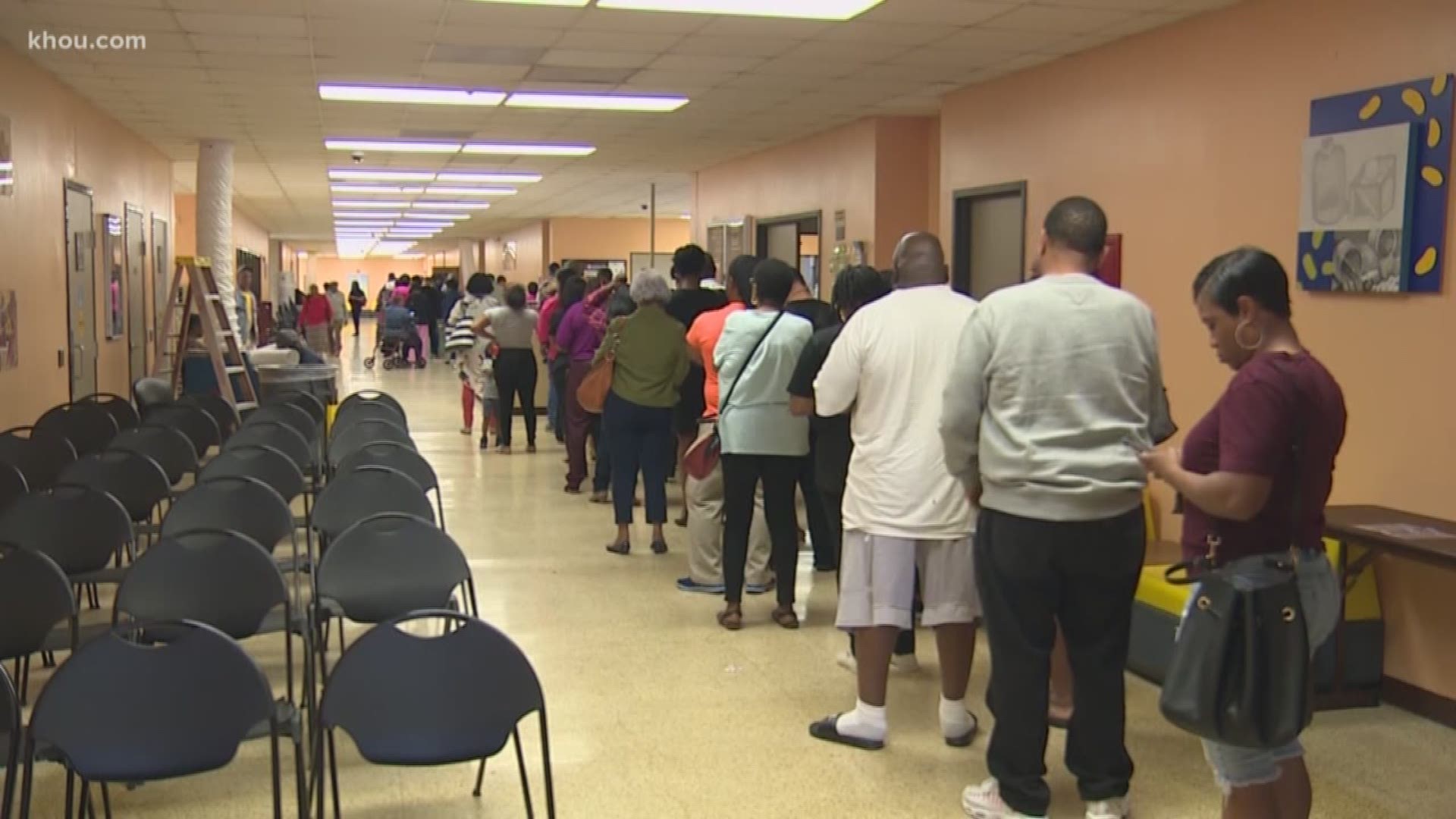HOUSTON, Texas — Startling data in Louisiana show more than 70 percent of the nearly 600 deaths connected to coronavirus are African Americans.
Similar statistics are popping up in major cities like Chicago and across the south.
So, why is COVID-19 impacting black and other minority communities so much?
President Trump reacted by calling the data disproportional.
“It’s a tremendous challenge,” the president said. “It’s terrible.”
In Houston, numbers on the impact the virus is having on black communities are currently unavailable.
However, Mayor Sylvester Turner said health disparities have always existed in minority populations and are heightened because of COVID-19.
“People who are in low-income communities, people who have underlying health conditions—hypertension, diabetes, renal failure—all of those things will help to accentuate their situation,” Turner said.
Dr. Rojelio Mejia, an infectious disease scientist at Baylor College of Medicine, agreed. He said the virus isn’t targeting a specific group.
Mejia said because higher percentages of African Americans or Latinos live in poverty that if they get the virus they may have more health problems or deaths because of underlying health issues.
“And so when we hear about this disease causing bigger problems in minorities it makes sense and it's something we have to keep an eye on because these people are higher risk of bad outcomes,” Mejia said.
He said while it’s hard to immediately change the impact preexisting conditions have in these communities people remain proactive to curb the threat of coronavirus.
“So the best way to help everyone would be decrease the amount of exposure,” Mejia said.
Meaning: social distancing.
In the meantime, the city is working to improve access to testing sites to those who make up these vulnerable communities.
- Coronavirus live updates: Trump removes key official; NYC virus deaths exceed 3,200
- VERIFY: The stimulus checks won't impact your tax refund next year
- Photographers take family portraits during coronavirus pandemic in exchange for donations to Houston Food Bank
- Houston H-E-B employees test positive for coronavirus
Coronavirus symptoms
The symptoms of coronavirus can be similar to the flu or a bad cold. Symptoms include a fever, cough and shortness of breath, according to the Centers for Disease Control. Some patients also have nausea, headaches and stomach issues.
Most healthy people will have mild symptoms. A study of more than 72,000 patients by the Centers for Disease Control in China showed 80 percent of the cases there were mild.
But infections can cause pneumonia, severe acute respiratory syndrome, kidney failure and even death, according to the World Health Organization. Older people with underlying health conditions are most at risk for becoming seriously ill. However, U.S. experts are seeing a significant number of younger people being hospitalized, including some in ICU.
The CDC believes symptoms may appear anywhere from two to 14 days after being exposed.
Human coronaviruses are usually spread through...
- The air by coughing or sneezing
- Close personal contact, such as touching or shaking hands
- Touching an object or surface with the virus on it, then touching your mouth, nose or eyes before washing your hands.
Help stop the spread of coronavirus
- Stay home when you are sick.
- Eat and sleep separately from your family members
- Use different utensils and dishes
- Cover your cough or sneeze with your arm, not your hand.
- If you use a tissue, throw it in the trash.
- Follow social distancing
Lower your risk
- Wash your hands often with soap and water for at least 20 seconds. If soap and water are not available, use an alcohol-based hand sanitizer.
- Avoid touching your eyes, nose, and mouth with unwashed hands.
- Avoid close contact with people who are sick.
- Clean and disinfect frequently touched objects and surfaces.
- If you are 60 or over and have an underlying health condition such as cardiovascular disease, diabetes or respiratory illnesses like asthma or COPD, the World Health Organization advises you to try to avoid crowds or places where you might interact with people who are sick.
Get complete coverage of the coronavirus by texting 'FACTS' to 713-526-1111.

